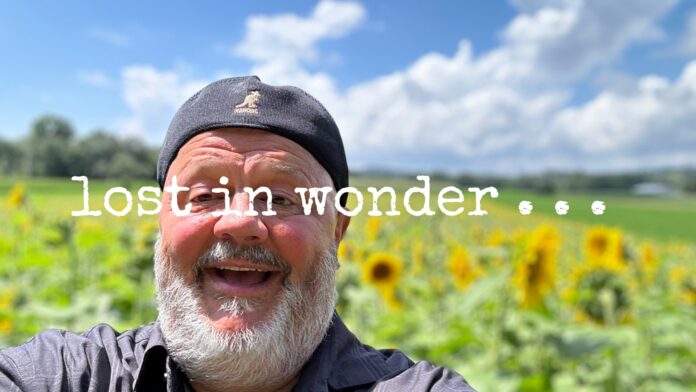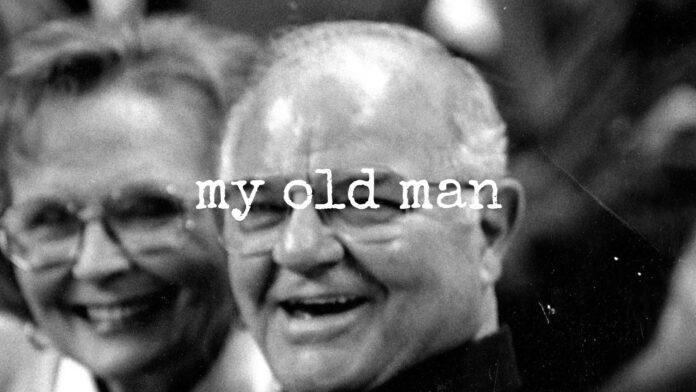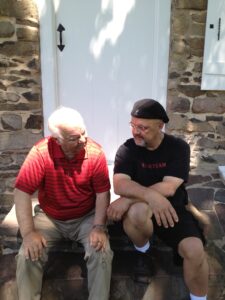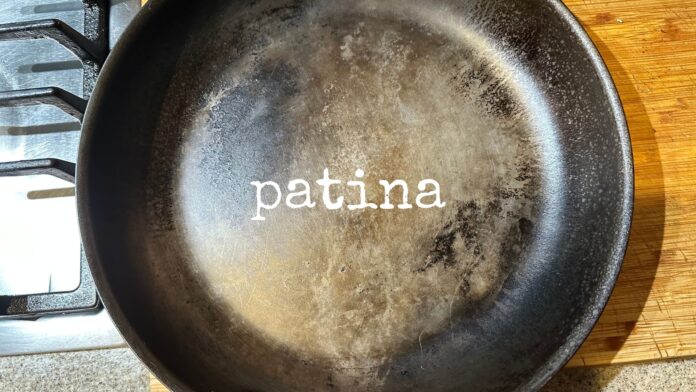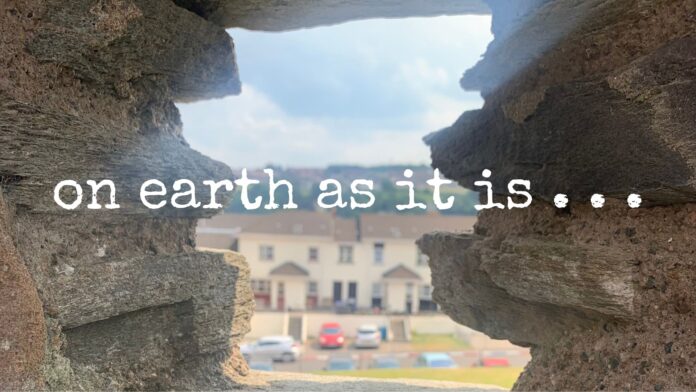I concluded my series on the Lord’s Prayer this past Sunday with a look at why we repeat ourselves in worship. We have more than one reason, I suppose, but the ongoing challenge is to maintain our intentionality: to repeat as a matter of meaning and not a matter of convenience.
________________________
During the first three or four summers after we graduated, many of my college friends got married. Because I was the one in our group who was in seminary and also pastoring a small church—which meant I was ordained—I didn’t just attend those weddings, I officiated them.
Baylor University is a Baptist school, as were most of my friends, and I grew up Baptist, but one couple got married at a United Methodist Church in Austin, Texas. The church sent me a booklet of rules for weddings in their sanctuary. One of the stipulations was that the Lord’s Prayer had to be included in the service. Baptist worship did not include saying the prayer each week, though I had memorized it as a child and thought I knew it well. I made a note in the margin of my ceremony to add it to the end of a prayer, much like we do in our worship.
The congregation responded on cue, and we dove into the prayer, but after I said, “Thy will be done on earth as it is in heaven,” I couldn’t remember what came next. I had a total blank. Instead of just keeping my mouth shut and letting everyone else carry the moment, I said the next line that came to mind, which was about trespasses instead of bread. I was on a microphone, so everyone heard my mistake, and it threw them off. The prayer ground to a halt. All I knew to do was cut my losses and go straight to, “And thine is the kingdom and the power and the glory.”
There was noticeable laughter after we said, “Amen.” At the end of the service, I told folks to go on to the reception so the wedding party could take pictures and practice the prayer.
I couldn’t remember the words, in part, because I didn’t have a good reason to be repeating them, other than to follow the custom of the church where we were. I wasn’t paying attention to the ritual; I thought repeating it would be enough, but it was not.
Ritual is intentional and (hopefully) meaningful repetition, a way of opening our hearts to God’s Spirit and to one another, but repeating ourselves is not always meaningful—and that goes for life beyond worship.
Repetition is one of the ways we learn, though as my opening story shows, it takes more than mere repetition to make something stick. Sometimes we do things a certain way over and over as a superstition, like baseball players do when they come up to bat. Some actors have specific routines they must do before a performance to calm their nerves. We cultivate habits, which is another word for repetition, to make sure we get things done, or perhaps just out of convenience, or even so we don’t have to think about what we are doing.
Practice is another word for repetition. We practice instruments, techniques in any number of fields. We talk about spiritual practice, which is designed to create focus and understanding.
All of these matter because they help us find our place. Our rituals, habits, and practices ground us, remind us who we are, and embody our way of looking at and belonging to the world that surrounds us. When they are alive to us and we are attending to them, our repetitions can open our hearts, animate our memories, and help us be more fully engaged with life. They can also be perfunctory, where we repeat things so we don’t have to think about them or pay attention. They become a way of getting by.
Neither of those perspectives are set in stone. We have to work to keep our repetition meaningful, whether we are in worship or out in the world.
There is good evidence that the early Christians were praying some version of what we call the Lord’s Prayer consistently in worship going back to the end of the first century, perhaps even before the gospels were written down. But, as we have talked discussed, Matthew and Luke recorded different versions, and the English translations are also varied. Perhaps what matters about praying the prayer together is that we are really praying it and not just reciting something word for word. When we use different translations we are still repeating what has been handed down, but we are also reinvigorating the words so that they are alive in us and not just filling our minimum weekly requirement.
Let me explain it another way—and this story will carry over into coffee hour. You will have a chance to taste what I am about to describe.
Soon after my parents married, my father took my mother to meet his grandmother, whom they called Ma. One of the reasons for the visit was for my mother to get Ma’s recipe for strawberry shortcake—and she did, though Ma’s instructions were not exact. She said things like, “Pour in two glubs of oil.” When my mother asked what a glub was, Ma said, “You turn up the bottle and it goes glub, glub.”
My mom took the information and figured out specific measurements so she could make the shortcakes, and they became one of our family rituals. I have lots of stories about strawberry shortcakes, lots of memories.
When I moved out of my parents’ house, I asked for the recipe. When Ginger and I married, it became one of our ritual meals as well, particularly on July Fourth. For a long time, I made them just as my mother had, but then I started to play around with them. I added fresh basil to the shortcake dough and soaked the strawberries in balsamic vinegar and a little brown sugar. I still feel like I am making my great-grandmother’s shortcakes, but my connection is not that I do it exactly as she did.
My baking is rooted in Ma and my mother, and those roots have grown deeper as I have acquired new ways of performing the ritual. When I share the recipe, which I have done many times, I don’t include a demand that anyone does it exactly like I do. I hope it feeds new practices for them as well.
Our habits, rituals, and practices help to give us a sense of place in the world. The word liturgy means “the work of the people.” It helps us all to have some sense of what to expect when we come to worship, and true worship asks more of us than saying the same things over and over. Rather than making perfect, practice makes people: our intentionality changes us and helps us to grow. It connects us. It gives us fresh eyes and open hearts.
That is why we change things from time to time in our order of service. You may have noticed that our doxology has changed from season to season. Our ritual of praising God (which is what doxology means) as we make our offering is one that calls us to gratitude, but God does not require that we sing the same song each time.
Over the summer, we have prayed different versions of the Lord’s Prayer to give us a chance to hear the ideas in different ways, and also to actually pray the prayer instead of merely reciting it. Though we will not change it every week, we will continue to pray different versions to help us draw closer to God.
I also hope we can develop a ritual (or a habit or a practice) of talking about what is meaningful in worship and what has grown stale. I would love to hear how you would adjust our worship recipe to give us a fresh taste of the Spirit of God. Amen.
Peace,
Milton

